Understanding Anxiety in Older Adults
Anxiety disorders often go unrecognized and untreated among older adults, despite their significant impact on overall health and quality of life. Factors such as social isolation, hearing loss, and chronic medical conditions increase vulnerability to anxiety and depression in this population. Managing anxiety effectively requires specialized, comprehensive professional care tailored to the unique needs of older adults. This article explores the extensive services available to support this demographic through multidisciplinary approaches, evidence-based therapies, and integrated treatment plans.
Comprehensive Treatment Services for Older Adults Facing Anxiety and Substance Abuse
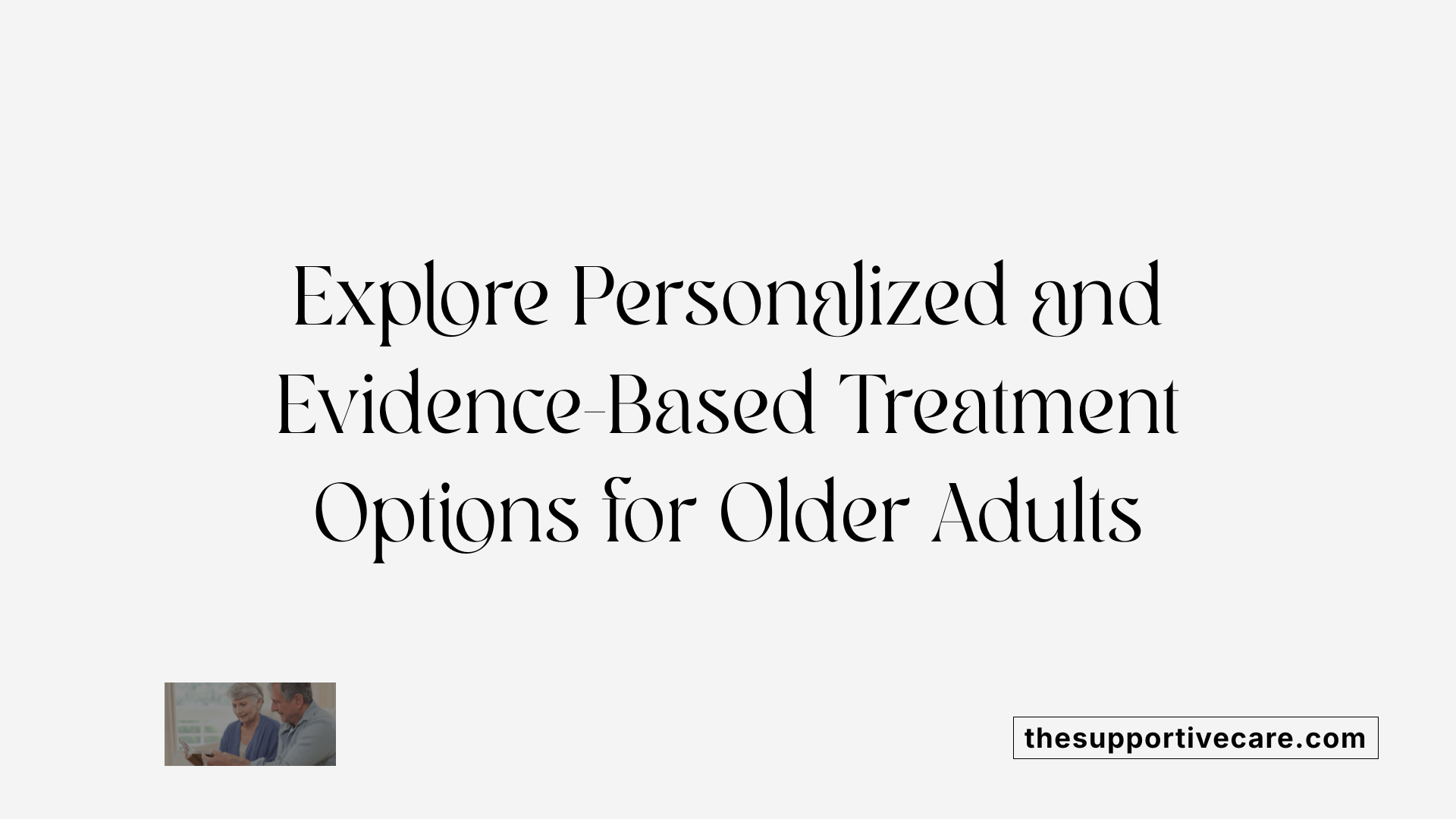
What comprehensive treatment services are available for substance abuse and mental health issues?
Older adults facing anxiety and substance abuse have access to a wide spectrum of comprehensive treatment services designed to meet their unique needs. These include personalized outpatient and inpatient programs offering evidence-based interventions such as detoxification, medication management, and a variety of therapeutic counseling options. Services like short-term intensive day treatment and partial hospitalization programs provide structured support while facilitating transitions to less restrictive environments.
What medication management and psychotherapy options are available?
Medication management is carried out by board-certified psychiatrists alongside nursing staff to ensure safe and effective use of psychiatric medications, including treatments for opioid use disorder. Psychotherapy services encompass individual, marital, family, and group therapy sessions tailored to older adults' mental health conditions. Advanced options such as Transcranial Magnetic Stimulation (TMS) therapy are also available for treatment-resistant depression.
How do multidisciplinary care teams support older adults?
Multidisciplinary teams made up of psychiatrists, psychologists, social workers, and addiction counselors collaborate to deliver holistic, person-centered care. This approach ensures that physical, psychological, and social aspects of health are addressed simultaneously. Recovery advocacy and support groups further reinforce community and peer support, which are vital for combating social isolation common among older adults.
How are interventions tailored specifically for older adults?
Given that older adults may face additional challenges like hearing loss, stress, or social isolation, treatment plans incorporate specialized support such as stress reduction techniques and peer support group therapy sessions. The care systems also emphasize proactive management of mental health symptoms and integrate resources to assist in crisis situations, including access to the 988 lifeline. Services are designed to be accessible both in-person and via telehealth, increasing reach to those with mobility or transportation limitations.
| Treatment Aspect | Description | Older Adult Relevance |
|---|---|---|
| Medication Management | Safe prescribing and monitoring of psychotropic drugs, including for substance use disorders. | Addresses age-specific pharmacological needs |
| Psychotherapy Options | Individual, group, family, and specialized therapies like TMS for depression. | Tailored to cognitive and emotional needs |
| Multidisciplinary Teams | Collaborative care involving psychiatrists, psychologists, social workers, and counselors. | Coordinates complex health and social care needs |
| Support Programs and Advocacy | Access to peer groups, recovery programs, and crisis intervention services such as 988 lifeline. | Helps reduce social isolation and manage crises |
| Care Delivery Modalities | Inpatient, outpatient, partial hospitalization, day treatment, and telehealth options. | Flexibility to accommodate physical and logistical barriers |
These integrated and adaptable services ensure that older adults receiving mental health and substance abuse treatment experience comprehensive, compassionate, and effective care tailored specifically for their needs.
Tailored Approaches to Behavioral and Substance Use Disorders in Older Adults
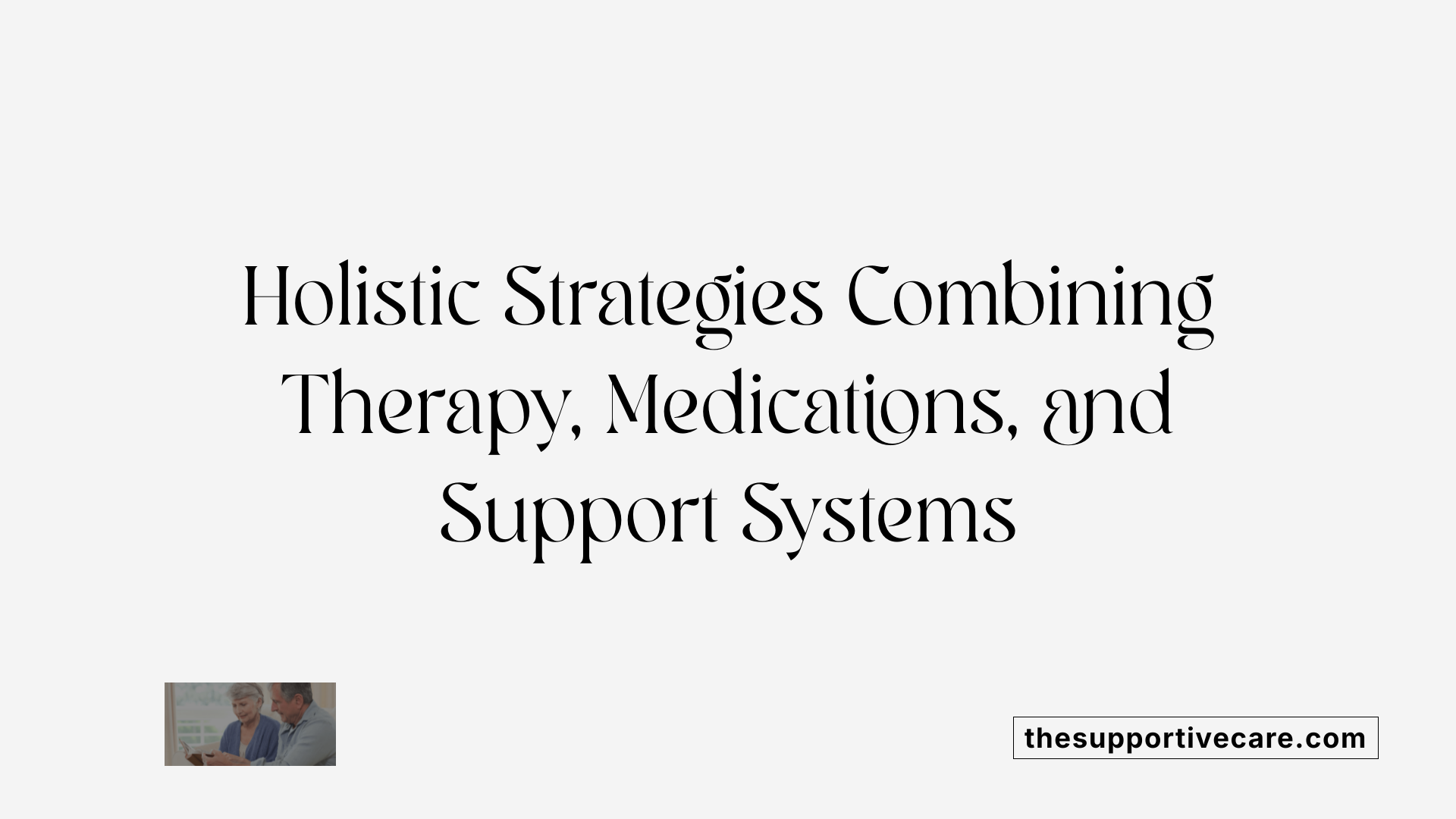
How do treatment programs address various forms of addiction beyond substance abuse?
Treatment programs recognize that addiction extends beyond substances to behaviors like gambling, compulsive internet use, or shopping. These behavioral addictions are approached with specialized cognitive-behavioral therapy (CBT) and motivational interviewing techniques. These therapies focus on changing harmful behaviors and thought patterns that drive addiction.
Trained professionals assess behavioral addictions by evaluating factors such as compulsivity, cravings, loss of control, and the negative impact on daily life. This is supported by psychological screening tools alongside an understanding of the neurobiological similarities between behavioral and substance use disorders.
Support systems are an important part of recovery. Twelve-step groups tailored to behavioral addiction provide peer support, while family involvement enhances treatment outcomes by creating a supportive environment. Though there are no official medications approved specifically for behavioral addictions, some treatments for substance use disorders, including naltrexone, have been used off-label to help reduce addictive behaviors.
Medication-assisted treatments (MAT) remain essential for substance use disorders in older adults, combining FDA-approved drugs like buprenorphine and methadone with counseling and therapy. This comprehensive approach acknowledges the complex neurobiological mechanisms behind addiction, which intertwine brain reward pathways, impulse control, and emotional regulation.
By integrating psychological therapies, medication, family engagement, and peer support, treatment programs for older adults take a holistic approach that encourages sustained recovery and management of both behavioral and substance use disorders.
Multidisciplinary Care Teams and Integrated Services Enhance Treatment Outcomes
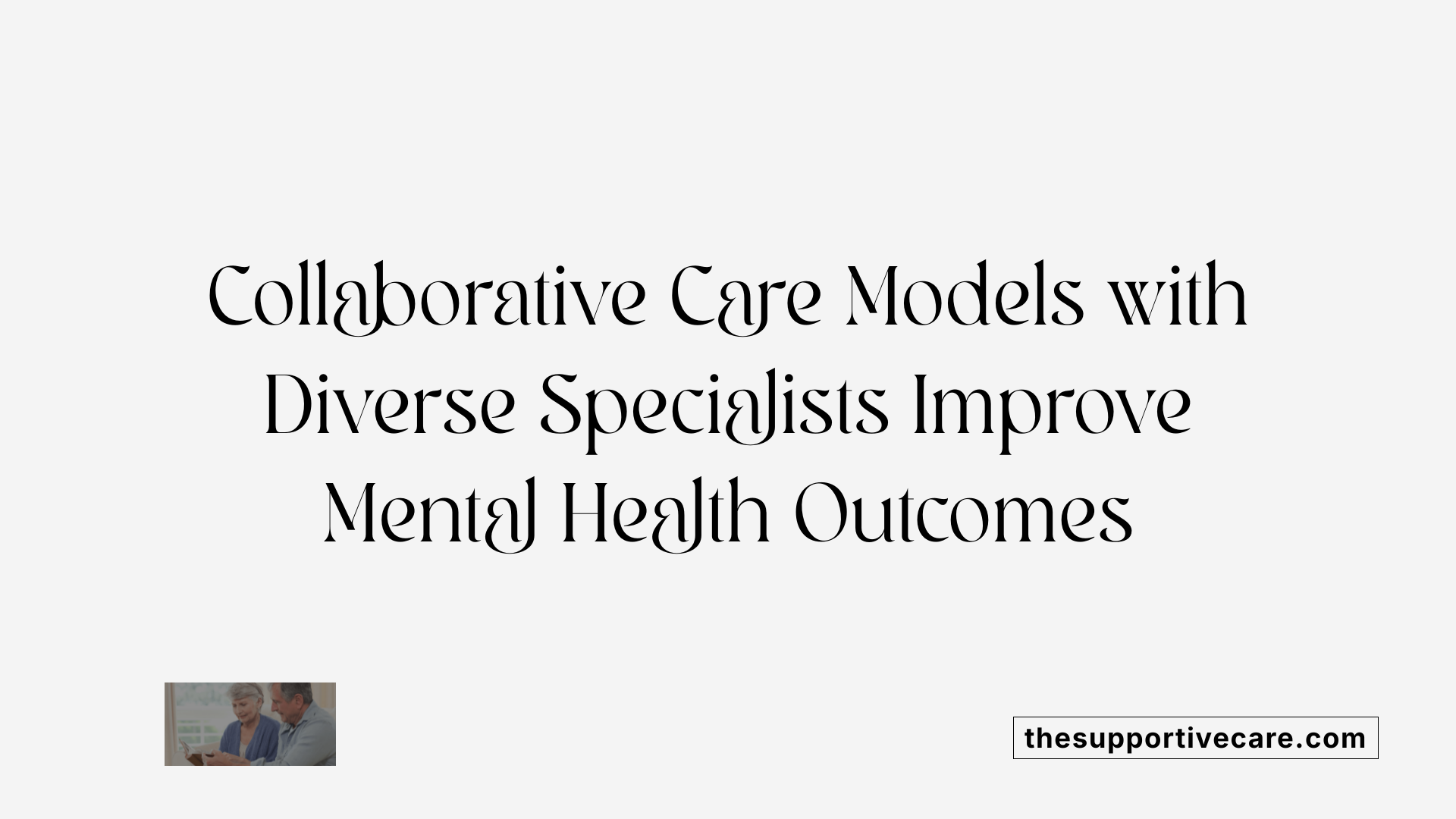
What Roles Do Different Specialists Play in Mental Health Care?
Multidisciplinary teams improve mental health outcomes by combining expertise. Psychiatrists focus on diagnosis and medication management. Psychologists provide therapy and psychological testing. Social workers address social challenges that impact mental health. Addiction counselors specialize in substance use disorders. This teamwork ensures comprehensive, personalized care.
What Care Options Are Available?
Advocate Health and Cook County Health provide various care levels:
- Inpatient care: Safe, structured environments with continuous support.
- Outpatient counseling: Individual, family, and group therapy sessions.
- Partial hospitalization: Intense treatment without overnight stays.
- Short-term intensive day treatment: Focused care addressing acute psychiatric symptoms or addiction.
How Does Recovery Advocacy Support Patients?
Support groups, family education, and recovery advocacy play vital roles. These services help patients build resilience, manage stress, and maintain progress beyond clinical settings.
Why Is Personalized Care Important?
Tailored treatment plans consider individual diagnosis, circumstances, and goals. Personalized approaches increase treatment effectiveness, promote engagement, and facilitate smoother transitions between care levels.
This coordinated model, involving diverse specialists and integrated services, fosters recovery and improves long-term mental wellness, especially for older adults managing complex mental health challenges.
Innovations in Access: Telehealth and Community-Based Mental Health Support
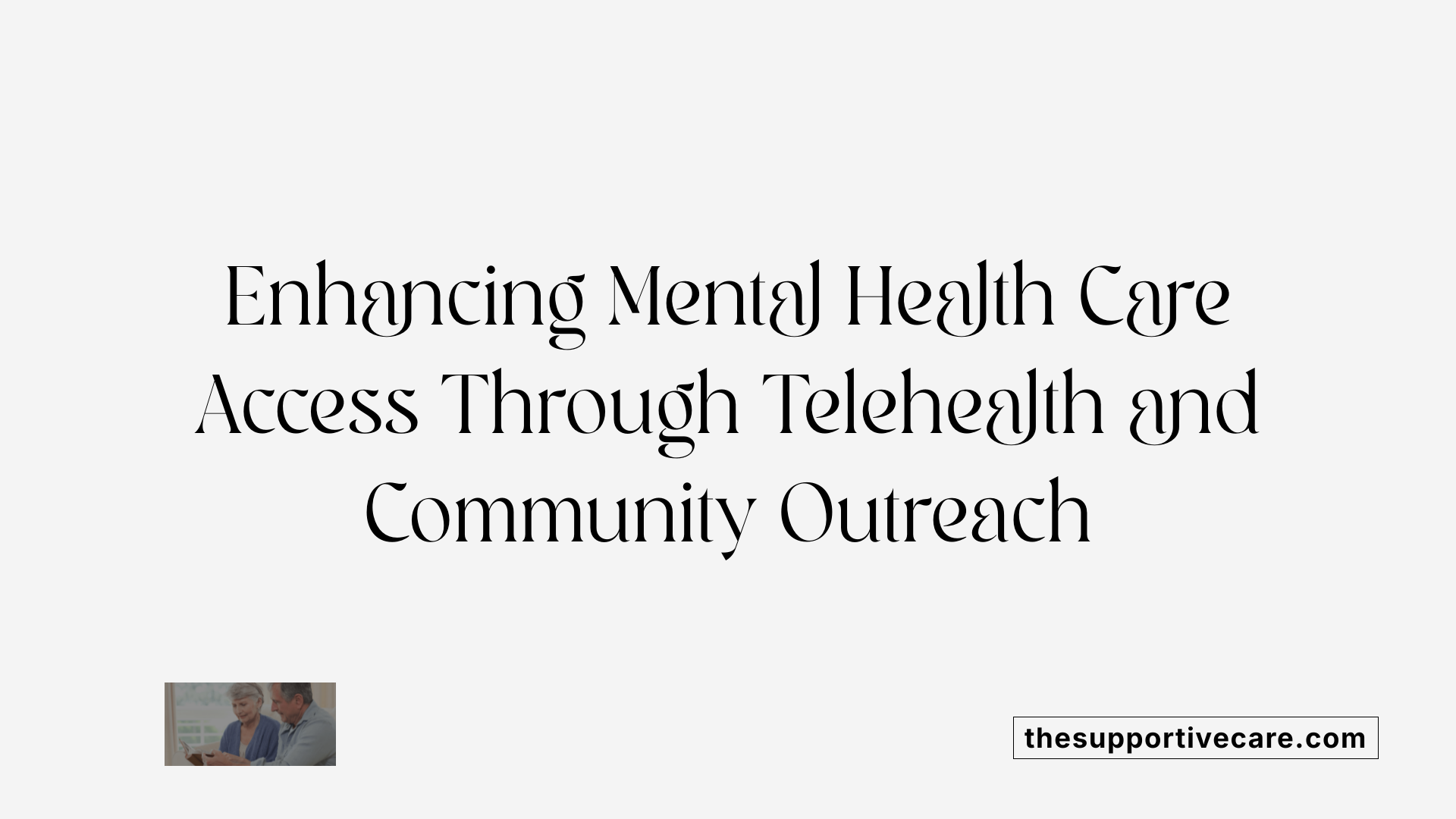
How do telehealth services improve access to mental health care for older adults with mobility challenges?
Telehealth services have become a vital innovation for older adults facing mobility or transportation challenges. By offering remote psychiatric assessments, therapy sessions, and medication management, telehealth removes many logistical barriers. Older adults can receive quality care from their homes, reducing the risk and stress associated with travel. This mode of care increases accessibility and ensures more consistent treatment engagement.
What outpatient mental health therapies and case management services are available?
Outpatient programs are diverse and include individual, marital, family, and group therapies. These are complemented by case management, which helps coordinate comprehensive care tailored to individual needs. Trained psychologists, social workers, and case managers provide support to monitor progress, connect patients with resources, and adjust treatment plans as needed, fostering a holistic approach to mental wellness.
How do community clinics and workforce expansion impact behavioral health services?
Community health centers extend behavioral health services across various locations, improving access for broad populations including underserved groups. Expansion of the behavioral health workforce ensures sufficient availability of psychiatrists, nurses, social workers, and counselors. This growth allows clinics to meet the increased demand for mental health and addiction care efficiently. Efforts focus on culturally competent services and disaster or trauma-informed care models to better serve diverse communities.
What crisis stabilization and emergency care options are provided?
Crisis stabilization is enhanced by specialized Clinical Triage and Stabilization Centers that offer immediate mental health support. Additionally, 24/7 emergency mental health services are available in select hospitals like Provident Hospital. These resources provide rapid response for psychiatric emergencies, helping stabilize patients and facilitate timely transitions to appropriate care levels.
In what ways is equity promoted and underserved populations addressed?
Health systems are committed to delivering behavioral health care to all residents regardless of ability to pay. Programs emphasize outreach to underserved populations, including older adults, racial minorities, and those with co-occurring disorders. Culturally sensitive programming and supportive services, such as recovery advocacy and peer support groups, help reduce disparities and improve mental health outcomes across communities.
Medicare and Resource Support: Facilitating Access to Care for Older Adults
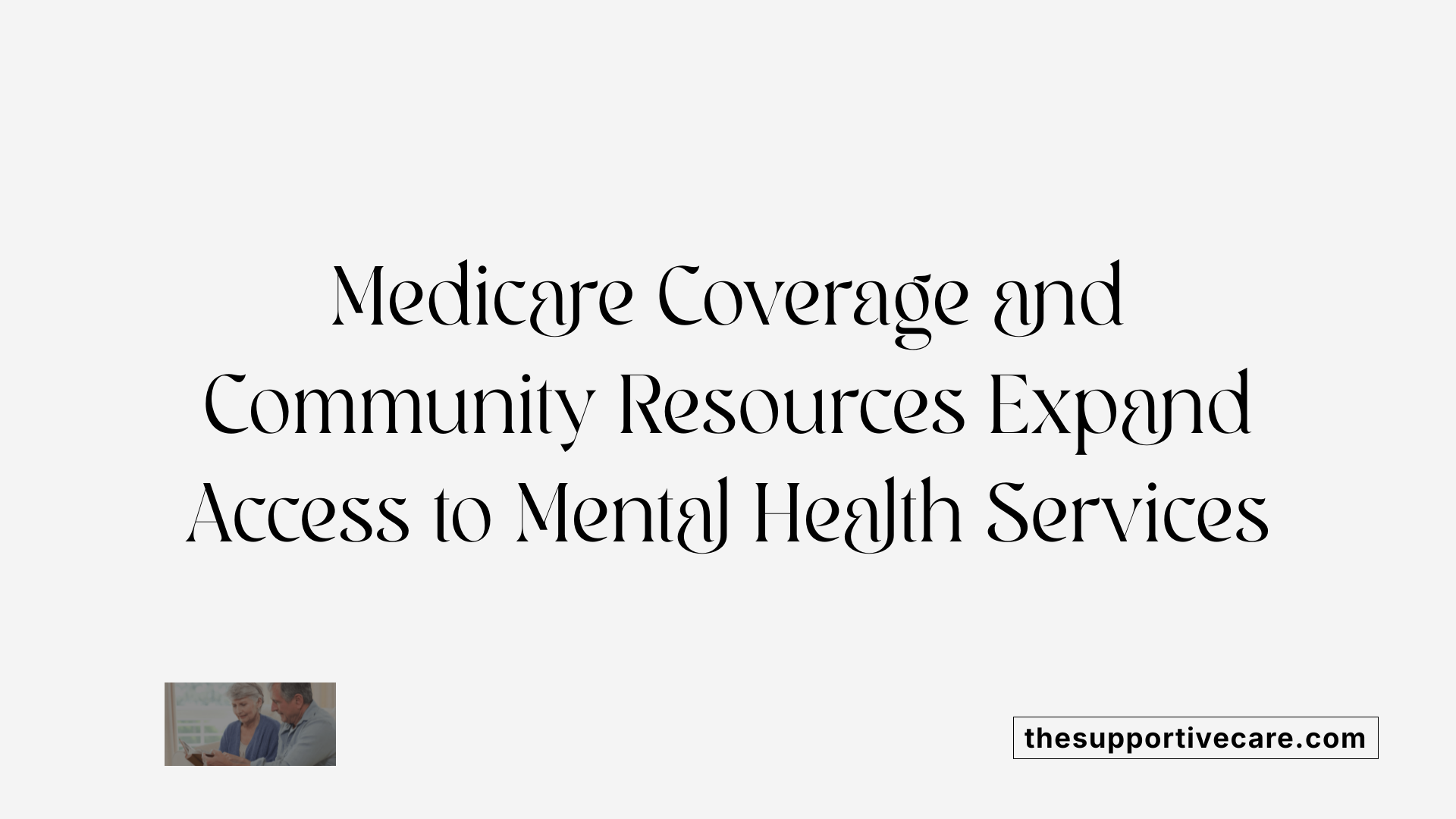
What behavioral health services does Medicare cover for older adults?
Medicare offers extensive coverage for behavioral health services critical to older adults. This includes inpatient hospital care, outpatient services at doctors’ offices or community mental health centers, and intensive outpatient programs providing at least 9 hours of weekly care.
Additional coverage includes full-day partial hospitalization programs requiring at least 20 hours weekly, ensuring access to a range of treatment intensities based on patient needs.
How does Medicare support preventive mental health screenings and counseling?
Medicare promotes early identification and intervention by covering preventive screenings such as depression assessments and evaluations for alcohol and tobacco misuse. These screenings help detect mental health concerns early, potentially improving treatment outcomes.
What coverage does Medicare provide for opioid use disorder treatments?
Coverage extends to comprehensive care for opioid use disorder, including counseling, behavioral therapies, and medical assessments. This supports older adults in recovery efforts with access to approved treatment modalities.
What resources are available to help older adults find mental health providers and support?
Accessible resources guide older adults to quality mental health providers and support organizations. Telehealth options, facilitated by Medicare, also enhance care access, particularly benefiting those with mobility or transportation challenges.
How do NCOA and SAMHSA contribute specialized resources for older adults?
The National Council on Aging (NCOA) supports older adults through crisis resources like the 988 lifeline, offering immediate mental health assistance. SAMHSA provides evidence-based guidelines, toolkits, and programs tailored to older adults with co-occurring disorders, substance use, and mental health challenges, promoting culturally competent and trauma-informed care.
Promoting Holistic Mental Health Care for Older Adults
Managing anxiety in older adults through professional care requires embracing a comprehensive, multidisciplinary approach that addresses both mental health and substance use issues. The integration of evidence-based therapies, medication management, and personalized treatment plans supported by multidisciplinary teams ensures optimal outcomes. Innovations such as telehealth improve accessibility, while Medicare coverage and national resources like SAMHSA and NCOA play crucial roles in expanding support. Emphasizing proactive care, social connection, and ongoing recovery advocacy will help older adults lead healthier, more fulfilling lives, free from the burdens of anxiety and addiction.
References
- Behavioral & Mental Health
- Mental Health & Substance Abuse
- Mental Health Resources & Support
- Evidence-Based Practices Resource Center
- Mental health & substance use disorders
- Home | SAMHSA - Substance Abuse and Mental Health ...
- Six steps for addressing behavioral addictions in clinical work
- What Is Process Addiction & Types of Addictive Behaviors?
- Introduction to Behavioral Addictions - PMC



































































































